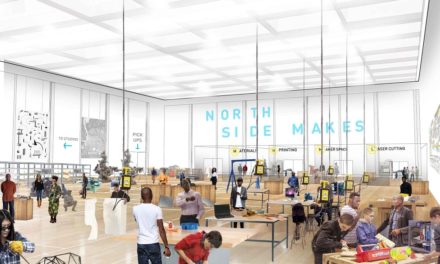Imagine you’re a community organizer in Detroit. You want to convert an abandoned lot into a community garden, and to back up your case, you plan a local survey of families who might use it. You organize a band of volunteers–mostly teens and retirees–who are willing to canvas the neighborhood. You arm them with your paper survey and send them off. After a few weeks, the team has collected a couple hundred data points. Then the real work begins: You must transcribe every survey by hand and pay an urban planner to analyze and map the results. It’s an expensive and tedious process–and in many cases, it’s out of reach for people interested in effecting change in their own communities.
“All across the nation, community groups are out in their neighborhoods, collecting information about where they live,” says urban planner Alicia Rouault. “But they’re doing it in a cumbersome way.” Often, interested community members don’t have access to the tools or knowledge they need to glean insights from the information they collect. Rouault and her collaborators, Matt Hampel and Prashant Singh, saw an opportunity to democratize data. “The people who are responsible for collecting the data shouldn’t be afraid,” Rouault tells Co.Design. “They should have access to it without having an expert mediate the process.”
As 2012 Code for America fellows, the trio have spent the past 11 months developing their solution: a “digital toolkit” called LocalData that is poised to revolutionize how communities collect and leverage data. Typically, this process is divided between on-the-ground volunteers who collect the information, and urban planners who glean meaning from it. LocalData disrupts convention by putting expert tools in the hands of communities, letting everyone get their hands (digitally) dirty with an easy-to-understand interface. With the free toolkit, the people who are culling the data–who arguably know the most about the issues at hand–can crunch it, too.
How does LocalData work? Let’s use the earlier example to illustrate. The community organizer could join LocalData and set up a streamlined survey using the app’s incredibly simple form tool. Then, the leader can send their survey as a URL link to volunteers, who in turn use their smartphones to record their results. Rouault adds that since many volunteers are elderly or young, smartphones may not be an option. “We opted to do a paper-based version, too, allowing a user to print out a map, draw on it, then scan it and geocode the qualitative information they drew.” After the surveys are complete, members can log-in to the dashboard and see their data, which has already been time-stamped, visualized, and mapped. They can also choose to download the data sets in popular file formats for further analysis.

Rouault, Hampel, and Singh developed the app while working with urban planners and community advocates in Detroit. They used an early version of LocalData to help a community track urban blight, and later, to help urban planning students carry out a sweeping commercial parcel study. “They mapped 9,000 parcels [of land] in a matter of weeks, which they wouldn’t have been able to do using traditional survey methodologies,” Rouault explains. “It proved our hypothesis–that this could be a useful tool not just for community groups, but for experts.”
After months of coding and testing, with the end of their fellowships fast approaching, the team decided they wanted to take LocalData further. They applied for a Knight Foundation grant, and were awarded $300,000 on October 4th. The money will help them launch LocalData nationally at the end of the year, targeting civically driven institutions in New York, Boston, Detroit, Chicago, and the Bay Area (though Rouault says that the toolkit will be available everywhere). LocalData will serve as the keystone for Amplify Labs, the trio’s newly formed “civic startup” aimed at effecting change through technology on a local level.
Two months before LocalData’s official launch, the creators are already fielding requests from wildly diverse interested parties, including city health departments. Rouault believes that’s proof positive that these tools are desperately needed at all levels of civic policy-making, from grassroots organizers to city officials. And despite the growing momentum behind the project, LocalData’s code will always be free for everyone, available on GitHub. “We tried to make it as inclusive as possible,” she adds. “We’re really proud of that thinking.”



